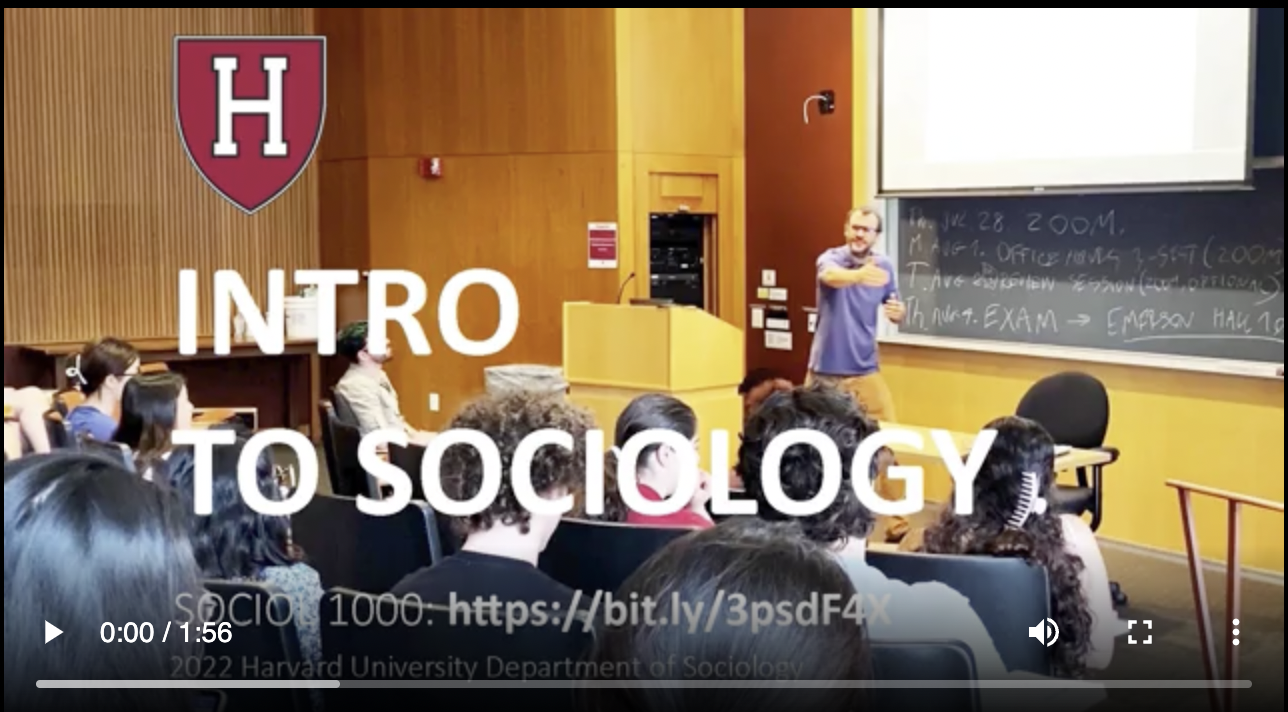What is Sociology?
Sociology is the scientific study of human relationships, groups, and institutions. It is the study of social life at every level: from the rise and fall of nations and civilizations to two-person relationships such as those between two friends, romantic partners, or even two strangers on the street. Sociologists examine how cultural and social structures come to shape and are shaped by human action and consciousness.
Sociology is highly interdisciplinary, drawing insights and methods from history, anthropology, economics, political science, psychology, medicine, and applied mathematics, physics, and computer science.
Preparing Students for a Variety of Careers
It should come as no surprise that our concentrators find themselves well-prepared for a wide variety of “real world” occupations. Sociology is excellent training for careers in law and public administration, medicine and public health, advertising and marketing, politics and public policy, business, banking, and consulting, to name just a few.
Mastering Multiple Modes of Inquiry
Our undergraduate program is also unique in its emphasis on mastering multiple modes of inquiry. Students get training in quantitative analysis, ethnography and in-depth interviewing, and comparative-historical analysis. The concentration also offers courses in the widest possible array of substantive topics, allowing students to create a customized curriculum suited to their particular interests. Some concentrators choose to focus their studies around a single topic—race and ethnicity, for example, or culture and the arts—while others prefer to sample a broad mix of topics. A quick look at our course offerings will show the large number of subjects and perspectives covered in our department. Our faculty includes among it the world’s foremost experts in areas such as poverty, immigration, race and ethnicity, corporate management, crime, politics, intellectual and social history, work, gender, and culture. We host scholars with area expertise in many, if not most, of the major regions of the world.
Sociology crosses with many of our sister disciplines, but it is unusual in its concern with the interrelation of social forces studied in isolation elsewhere. Economics and politics are common concerns of sociologists, for example; the difference is that we tend to approach these issues as part of a complex whole rather than independent features of humanity—Sociology is concerned foremost with social interactions. Sociology’s breadth seems particularly valuable in our increasingly global, inter-dependent world.
Sociology 1000: Introduction to Sociology
Interested in learning more? Check out Sociology 1000: Introduction to Sociology!




